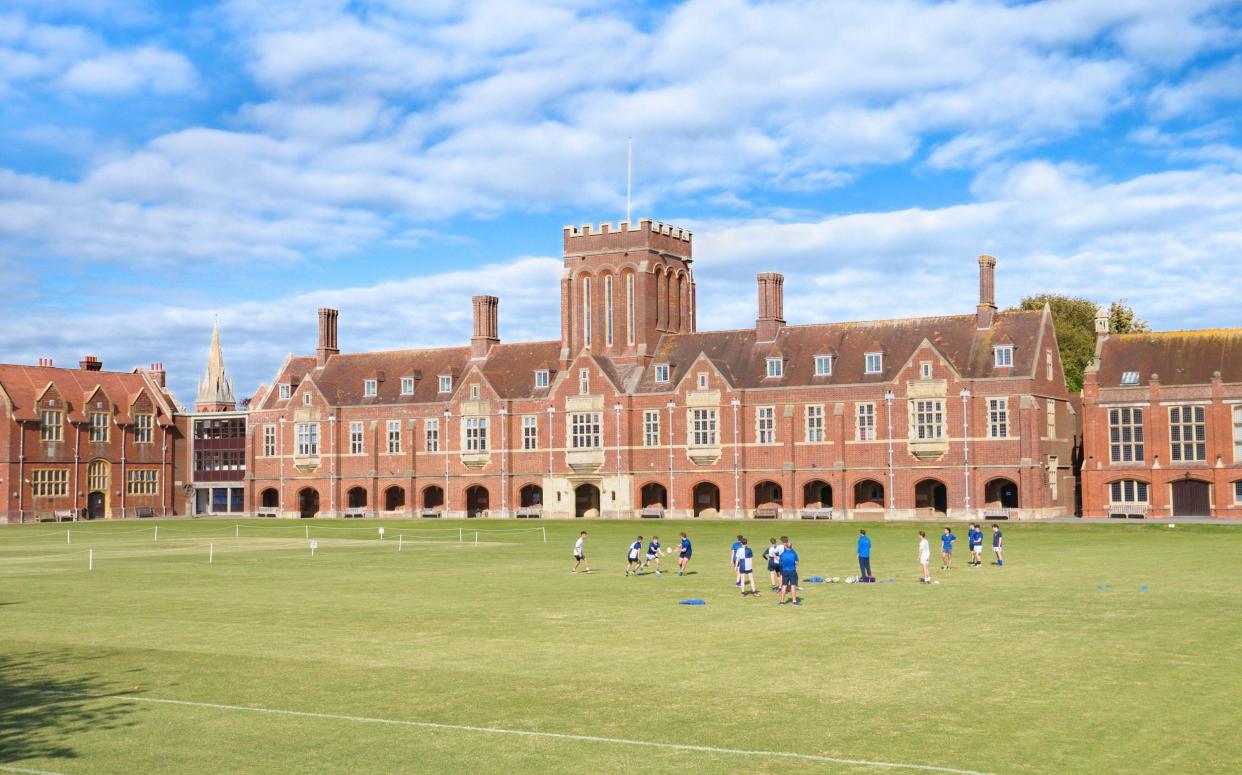AI should be used in exams to stretch the brightest pupils, says public school headmaster

Artificial intelligence should be used in GCSE exams to stretch the brightest pupils, according to a private school headmaster.
Tom Lawson, head of Eastbourne College, the £44,000-a-year school in East Sussex, said that using AI in exams to introduce adaptive testing would mean questions could be modified to tease out the student’s level of understanding, improving accuracy in testing.
He said: “With adaptive testing, if someone is finding it hard to access the exam, instead of becoming overwhelmed and having some [pupils] virtually giving up, the questions get easier. And if someone is really flying, the questions get harder.”
Strong candidates could demonstrate “ever higher levels of understanding – making the process much more rewarding and able to give credit for those who have skills way above the expected level”, he said. Meanwhile, struggling pupils would be given “more opportunities to showcase their understanding”.
Mr Lawson said that the existing tests have become an “anti-intellectual exercise” which teaches pupils to “regurgitate things in a certain way on a piece of paper”.
Adaptive testing would stop schools from “teaching to the test” because the exams would be “infinitely variable and less gameable, allowing a radical rethink of how teachers inspire pupils and how imaginative curricula can be,” he added.
‘I think AI would be far superior at marking’
Eastbourne is a co-educational school for day and boarding pupils. This year, 57 per cent of GCSE grades awarded to its pupils were 7, 8 or 9, the equivalent to an A or A*.
Alumni of the school include the late Lord Wyatt of Weeford and Eddie Izzard.
Mr Lawson’s comments come after Latymer Upper School, an independent school in west London, announced it would drop all GCSEs except English and Maths. The school has created its own qualifications to better “stretch” pupils, and will assess teenagers by interviews, spoken exams and projects, as well as written exams.
Mr Lawson said he wants to see AI used for marking GCSEs to ensure grades are more reliable. Last summer, the school requested remarks for around 45 entries. About 15 grades were changed, and several were changed by more than one grade.
Mr Lawson said: “I think AI will be far superior at marking. It doesn’t get tired at the end of the day, it doesn’t get bored of marking the same question over and over again. And you can take the best human markers, and use them for the appeals to check if the AI made a mistake, and then use that resource much more efficiently than we have at the moment.”
An Ofqual spokesperson said: “There is not sufficient evidence to show that artificial intelligence is able to act as a sole marker for student work reliably and fairly, in a way that would secure public confidence. On that basis Ofqual has prevented the sole use of AI in marking. However, artificial intelligence may have a role to play in quality assuring human marking.”
The spokesperson added: “Adaptive testing may present opportunities to improve how students are assessed in some qualifications, but this is likely to be some years away and will require further research.”

